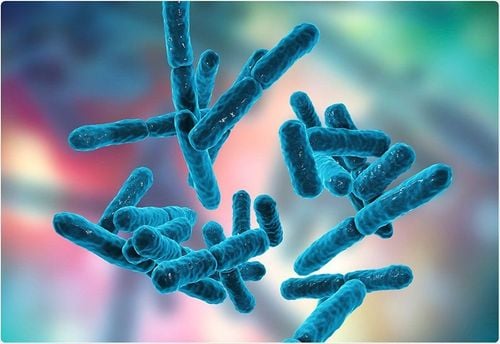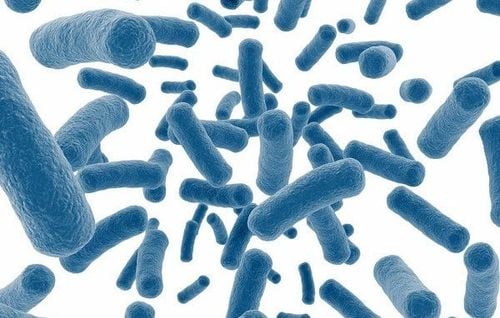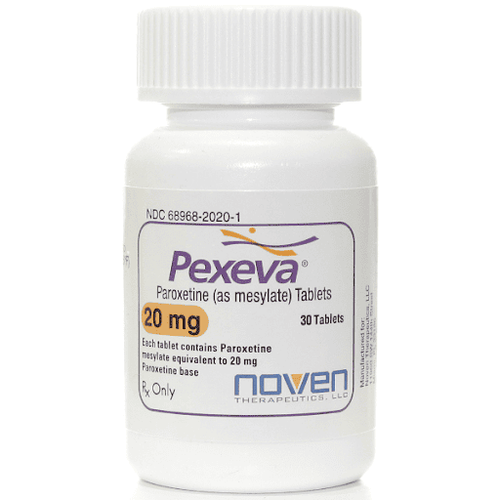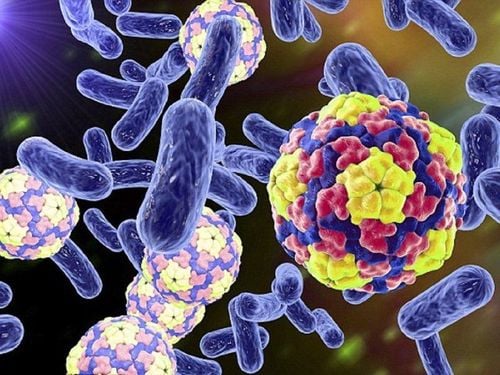This is an automatically translated article.
The gut microbiome plays an important role not only in the digestive system but also in many aspects of mental health, especially stress response and depression.
1. The role of the brain-gut axis
The two-way relationship between the central nervous system and the gut microbiota is called the gut-brain axis. A growing body of evidence suggests that the gut microbiome is implicated not only in gastrointestinal diseases but also in many aspects of mental health. A healthy gut plays a certain role in the stability of central nervous system function. Intestinal dysbiosis and inflammatory bowel disease can contribute to a number of common psychiatric conditions, such as stress response and depression.
Several research groups have shown that the gastrointestinal microbiota is a positive factor of the gut-brain axis. Hormones, neurotransmitters, and immune factors released from the gut can send signals to the brain directly or through the autonomic nervous system. Accordingly, the gut microbiota is considered an organic organ that not only helps digest food, but also exchange molecular signals through the brain-gut nerve axis. This process allows them to communicate intimately with the entire body.
Comparisons between healthy and pathogen-free animals have provided important evidence. For example, the absence of gut microbiota increases blood levels of corticosterone, increases the permeability of the blood-brain barrier, and leads to impaired glial cells.

Hệ vi sinh vật đường ruột ảnh hưởng tới nhiều khía cạnh của sức khỏe tâm thần
2. Gut microbiota changes blood corticosterone levels
Research shows that the absence of gastrointestinal microflora increases the production of corticosterone in the blood, leading to anxiety and stress disorders.
Research shows that the gut microbiome may be involved in the control of neural activity and play a role in mental health. Imbalance of gut bacteria is associated with increased risk of depression and autism in children. Accordingly, children with autism often have an abnormal and less diverse gut microbiota than healthy children.
Many experimental studies on the effects of gastrointestinal microbiota on mental health have been performed. Studies are often accompanied by behavioral observations to assess anxiety levels in laboratory animals when placed under stress. Researchers have noted that mice bred to be free of gut bacteria often overreact to stress. In addition, many subsequent studies have demonstrated that a lack of gut microbiota alters the brain's responsive function.
Research also shows that the gut microbiome can stimulate the stress response by directly activating the vagus nerve, which innervates several organs, including the upper gastrointestinal tract. This is related to the direct contact of the gut microbiota with the sensory neurons of the enteric nervous system. According to the results of the study, the sensory neurons were very low in activity in mice without gut bacteria. However, when they were infused with probiotics to restore the gastrointestinal microflora, nerve cell activity levels returned to normal.
Another study found that controlling the gut microbiome stabilizes neuroendocrine responses and modulates stress-induced anxiety. Accordingly, the research team added the probiotic Lactobacillus rhamnosus to lab rats for a month, in order to rebalance the intestinal flora. The results showed that when the gut microbiota stabilized, there was a reduction in the increase in plasma corticosterone and a decrease in anxiety levels in the face of stress. Anxiety disorders also decreased when the team experimented with different strains of mice and with other strains of bacteria (such as Lactobacillus farciminis, Lactobacillus helveticus and Bifidobacterium longum).

Sự vắng mặt của hệ vi sinh vật đường tiêu hóa dẫn đến rối loạn lo âu
3. Mechanism of influence of gut microbiota on mental health
Mental health can be impacted through neural signaling connections between the gut microbiome and the brain, including: bacterial macromolecules such as lipopolysaccharide, peptidoglycan, flagellin; Products of bacterial catabolism, such as short-chain fatty acids, are excreted within the intestinal lumen. These factors may interact with the brain through different pathways, in which cells of the intestinal mucosa act as mediators:
Metabolic pathways: Nerve signals are absorbed absorbed by enterocytes (extracellular glands) or intercellular links (intracellular glands) and secreted into the bloodstream, then crosses the blood-brain barrier. Nervous pathway: Stimulates neurons of the small intestinal nervous system and the parasympathetic division of the autonomic nervous system. Immune pathway: Stimulates intestinal immune cells, regulates the balance of cytokines and produces anti-inflammatory effects, affects brain activity. Endocrine pathways: Activation of neuropeptide production by enteroendocrine cells. The products of the gut microbiota can be metabolites or cellular macromolecules such as lipopolysaccharides. They can reach the brain through the bloodstream, which, after being absorbed by the intestinal epithelium, leads to the stimulation of secretion of neuropeptides by enteroendocrine cells; stimulates the intestinal immune system and cytokine production; Stimulates neurons of the small intestinal nervous system and the sympathetic nervous system of the autonomic nervous system.
On this basis, the mechanism of impact of gut microbiota on mental health was identified, through neuroendocrine and emotional responses to stress.
Follow Vinmec International General Hospital website to get more health, nutrition and beauty information to protect the health of yourself and your loved ones in your family.
Please dial HOTLINE for more information or register for an appointment HERE. Download MyVinmec app to make appointments faster and to manage your bookings easily.
References: ncbi.nlm.nih.gov













